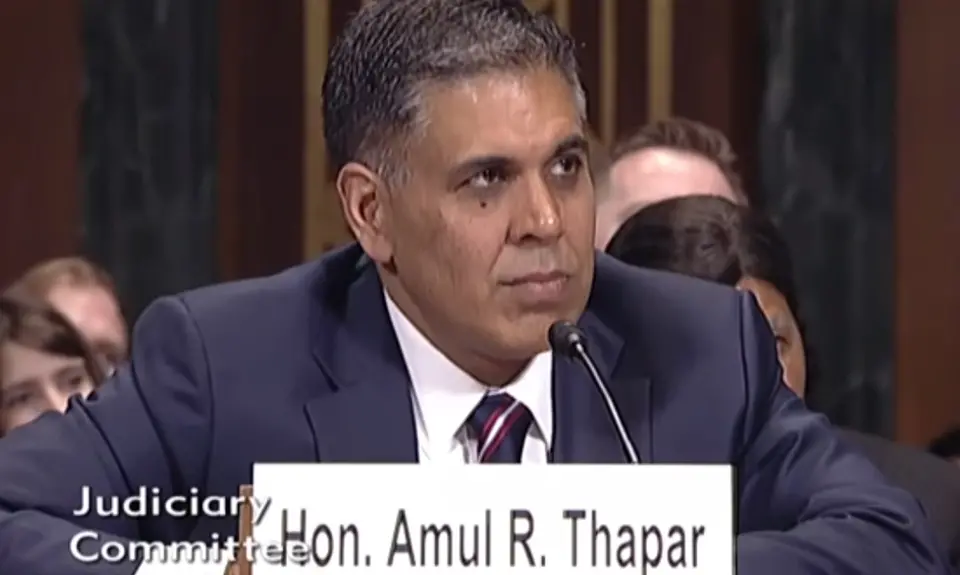“Confirmed Judges, Confirmed Fears” is a blog series documenting the harmful impact of President Trump’s judges on Americans’ rights and liberties. Cases in the series can be found by issue and by judge at this link.
Trump Sixth Circuit judge Amul Thapar cast the deciding vote to affirm the dismissal without trial of a homeowner’s claim against her insurance company for refusing to cover water damage to her home. The March 2020 case is Keathley v. Grange Ins. Co.
Tamika Keathley bought a homeowners’ insurance policy from Grange Insurance Co. for a home she had recently purchased in eastern Michigan. In early 2014, she discovered that the property had sustained serious water damage as a result of frozen and later burst pipes, which is “a loss for which the policy provided coverage.” Although she did not file a claim at the time, she called the agent who had sold her the policy within a week of the incident and told her about the loss. The agent told her that she could try to arrange repairs herself and had six months to file a claim.
Keathley and Grange disagreed about what happened after that, but Keathley maintained that the damage was very serious and cost her more than $130,000 to repair. She filed a claim with the insurance company in early April, before all the repairs and restoration were completed. But Grange denied her claim, asserting that she had not actually provided notice until the filing of the claim in early April, violating the policy’s requirement of prompt notice, and that she had not exhibited the damage to Grange as required by the policy.
The district court agreed with Grange and granted summary judgment to the insurance company, dismissing Keathley’s case without a trial. Thapar provided the deciding vote in a 2-1 decision that affirmed that ruling on appeal.
Judge Helene White, who was nominated by President George W. Bush, strongly dissented. She pointed out that “viewing the facts in the light most favorable to Keathley,” which is required because summary judgment without trial was granted against her, there was a “genuine dispute of material fact” as to whether she complied with the policy, and there should have been a trial. Specifically, White explained, there was a strong argument that Keathley had provided prompt notice by calling the agent, and it did not matter that Keathley told the agent not to actually file a claim at that time. The policy required Keathley to exhibit the damaged property only “when requested” by Grange, White went on, and Grange [could have but] did not make such a request at any time after the phone call [to the agent], but Grange did not send someone to inspect the property until May. In addition, Keathley pointed out that no one ever told her to stop repairing the property after the agent said she could do so, and the policy specifically required her to make “necessary and reasonable repairs to protect the property” after the damage occurred. White concluded that Keathley should have had the chance to prove her claims against Grange at a trial.
As a consumer and a homeowner, Tamika Keathley should have received a trial on her claims of loss of more than $130,000 against her insurance company. But as a result of Thapar’s vote, she will not and her case to recover that money has been dismissed.
